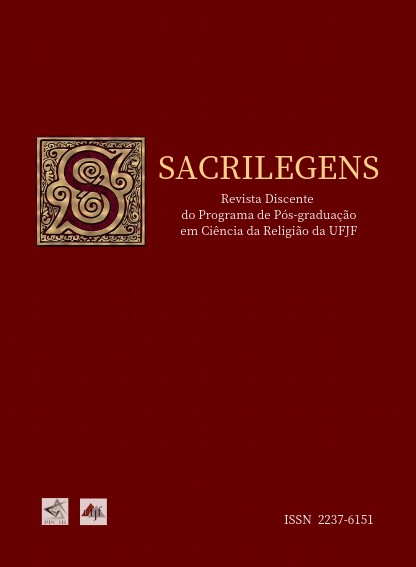The origin of prejudice in Allport as an obstacle to inter-religious dialogue
DOI:
https://doi.org/10.34019/2237-6151.2017.v14.26977Keywords:
Interreligious Dialogue, Prejudice, Generalizations, Subjective universe, Affective distancingAbstract
We will discuss in this article prejudice as an obstacle to interreligious dialogue, for which, Allport, American psychologist, points us a way. According to him, prejudice has its sources in the passionate defense of personal values that raise walls of protection and see others as a threat. The convenience of generalizations and simplistic categories impel the formation of stereotypes, which make natural ideas and hostile attitudes, which, in fact, have no foundation because they belong to the subjective universe. In this sense, we will also use Bachelard's theory about the importance of affective detachment for the better understanding of an object of study. Conscious of the fact that prejudice is also influenced by the historical period and by cultural and religious differences, we will intersect Allport's concepts with the models used by the theology of religious pluralism, in order to verify if there is really an approximation that clarifies the difficulties and challenges imposed on the interreligious relations, and even personal relations, so that progress can be made in understanding and accepting differences.
Downloads
References
BACHELARD, Gaston. A formação do espírito científico: contribuição para uma psicanálise do conhecimento. Rio de Janeiro: Contraponto, 1938.
BALLALAI, Roberto. Notas e subsídios para a análise do discurso (uma contribuição à leitura do discurso da Administração). Fórum Educacional. Rio de Janeiro: Fundação Getúlio Vargas, 13 (1-2), p. 56-89, fev./maio 1989.
BASSET, Jean-Claude. Religiones en Diálogo. El diálogo interreligioso: oportunidad para la fe o decadencia de la misma. Bilbao: Desclée De Brouwer, S.A; 1999.
DALAI LAMA. Uma ponte entre as religiões: por uma verdadeira comunhão de fé. São Paulo: Martins Fontes, 2014.
JAPIASSU, Hilton. O mito da neutralidade científica. Rio de Janeiro: Imago, 1975.
KNITTER, Paul. F. Introdução às Teologias das Religiões. São Paulo: Paulinas, 2008.
TAMAYO, Juan J. Pluralismo religioso, Teología de las religiones y sus implicaciones en el diálogo inter-religioso. XXII Congresso de Teologia da Pontifícia Universidade Católica do Paraná – PUCPR Brasil. Outubro, 2016.
TAMAYO, Juan J.; BETANCOURT, Raúl F. (Eds). Interculturalidad, diálogo interreligioso y liberación. I Simposio Internacional de Teología Intercultural e Interreligiosa de la Liberación Barcelona, 11-12 de julio de 2004. Universidad Carlos III de Madrid. Instituto de Derechos Humanos Bartolomé de las Casas. Cátedra de Teología y Ciencias de la Religión “Ignacio Ellacuría”. Estella: Editorial Verbo Divino, 2005.
TEIXEIRA, Faustino; DIAS, Zwinglio M. Ecumenismo e Diálogo Inter-religioso: A arte do possível. 9. ed. Aparecida: Editora Santuário, 2011.
USARSKI, Frank. O Budismo e as outras: encontros e desencontros entre as grandes religiões mundiais. São Paulo: Ideias e Letras, 2009.
USARSKI, Frank. História da Ciência da Religião. In: PASSOS, João Décio; USARSKI, Frank (Orgs). Compêndio da Ciência da Religião. São Paulo: Paulinas; Paulus, 2013.
VIGIL, José Maria. Teologia do Pluralismo Religioso: para uma releitura do pluralista do cristianismo. São Paulo: Paulus, 2006.
WOLFF, Elias. Unitatis Redintegratio, Dignitatis Humanae, Nostra Aetate. Textos e comentários. São Paulo: Paulinas, 2012.
Downloads
Published
How to Cite
Issue
Section
License
 Sacrilegens is licensed under a Creative Commons Attribution 4.0 International License.
Sacrilegens is licensed under a Creative Commons Attribution 4.0 International License.










